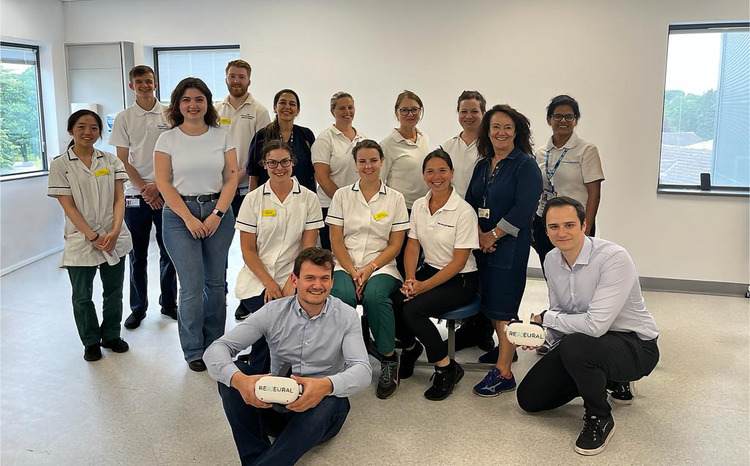AI to help boost NHS winter response and prevent avoidable admissions
- 14 November 2023

AI will spot patients at risk of needing to go to hospital so community NHS teams can get to them first and reduce pressures on A&Es, as part of a range of tech and data solutions being rolled out across the NHS ahead of winter.
Four GP practices in Somerset are trialling an AI system which can highlight registered patients with complex health needs, at risk of hospital admission or who rarely contact their GP and reach out to them for conversations about their health.
People most at risk will then be contacted by health coaches, nurses, or GPs, who can provide a range of preventive care such as offering vulnerable patients food parcels, escalating care to specialist doctors, putting in support to avoid falls, or link them up with a local voluntary group to help avoid loneliness.
In Buckinghamshire, the NHS is using AI linked to electronic sensors on kettles and fridges that spot changes in Somerset patients’ eating and drinking habits. These are then flagged with a non-clinical Onward Care team who speak to patients, solving 95% of their issues or escalating anything clinical.
Patients can choose whether they want to benefit from these local, practical measures which are helping frail patients avoid hospital readmission by offering monitoring, as well as a range of other help such as cleaning, shopping, and food parcels.
NHS teams in some areas of Birmingham are piloting an approach which uses an algorithm to predict the top 5% at risk of potential hospital attendances or admissions. Staff check in to offer social care assessments, medication reviews or other social prescribing measures to avoid A&E admissions.
Over the next two years, the scheme is aiming to prevent 4,500 unnecessary A&E attendances, 17,000 overnight hospital stays, and free up 23,000 GP appointments.
The new innovations come as latest data shows the significant pressure the NHS is already facing as it heads into winter, with most recent data showing it was the busiest October on record for A&E departments while ambulance services experienced their busiest month so far this year.
Winter preparations have been well underway since the urgent and emergency care recovery plan was published earlier this year, with measures to help boost capacity and resilience across the NHS, including care ‘traffic control’ centres to speed up discharge, additional ambulance hours and extra beds.
The NHS has continued to expand its world-leading virtual ward programme, delivering on its ambition to roll out 10,000 virtual ward beds by the end of September, so patients can receive hospital-level care from the comfort of their own home closer to family, friends, and carers.
Giving the NHS new tools
NHS chief executive, Amanda Pritchard, said: “This suite of tech and data solutions ahead of winter demonstrates how NHS staff across the country are innovating every step of the way, maximising the use of the latest technology and AI to help patients but also significantly reducing the number of avoidable A&E attendances.
“Not only are these measures better for patients who can be cared for at home where they feel most comfortable but they are good for the NHS too, particularly when we know that this winter is likely to be incredibly challenging.
“NHS staff across the country are already feeling the pressure with record demand for A&E and ambulance services – and so these new innovations being rolled out by NHS teams are an extra and welcome addition to our winter toolkit, with more call handlers and more beds already in place.”
Chris Holt, chief transformation officer at Birmingham Community Healthcare NHS FT, said: “Using data more smartly and harnessing the power of AI is now crucial in supporting the highest risk patients who, with the right support, can stay well at home.
“By identifying those complex patients – most likely to attend or be admitted to hospital over winter – means we can step in much sooner and give them support that’s personalised for them.”
Last week, the NHS launched its annual 111 campaign ahead of winter with ads running across catch-up TV, radio, social media and online until the end of March, reminding people to continue to use NHS 111 services when they need urgent, but not life-threatening, medical advice.
The campaign highlights how people can get advice from a range of NHS staff, including clinicians, nurses, and GPs – all from the comfort of their own homes. In a life-threatening emergency, people should continue to call 999.




